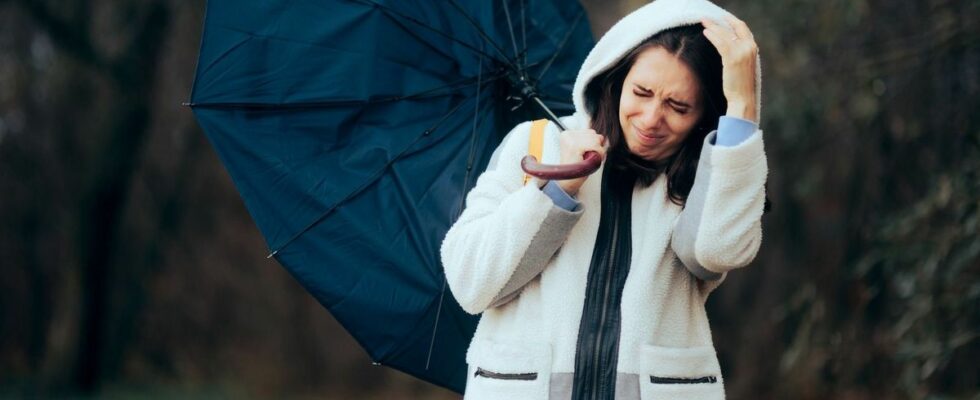Published on
updated on
Reading 2 min.
in collaboration with
Dr Gérald Kierzek (Medical Director of Doctissimo)
Medical validation:
October 10, 2024
Heavy rain, gusts, floods… Faced with the remains of Hurricane Kirk which are sweeping part of France this Wednesday, October 9, Dr Gérald Kierzek, emergency doctor, reveals the best advice to avoid accidents.
Today, 34 French departments have been placed on “orange alert”, whether for “rain and floods”, “wind” or “floods”. How to react (properly) to avoid accidents? What are the right reflexes to adopt in the event of a storm? Dr Gérald Kierzek, medical director of Doctissimo, answers us.
Orange alert: what does it mean?
As storm Kirk continues its path from Pays de la Loire to the Ardennes, via Île-de-France, a question arises. What does the “orange” vigilance level, triggered by Météo France, mean?
According to the government, this is “level 3”, indicating that “dangerous weather phenomena” are to be feared. An opinion shared by Dr Gérald Kierzek.
“It is from the orange level that the zone or department prefect implements an alert system intended for mayors, general councils and operational services“, he explains in his book “Have the right reflexes“. This level “should be taken seriously and allows you to prepare for a particular weather event. In this case, meteorologists recommend being very vigilant and canceling any outings or activities planned outside”.
On the ground, in the event of orange vigilance, ““Rescue must intervene in several areas affected by the winds, which can cause considerable damage to homes, in parks, but also on the roads, which can become inaccessible.” warns the medical director of Doctissimo.
Proof of this is with the landslides this morning, which prevented TER trains from traveling between Lyon and Saint-Étienne until midday.
Storm: what good reflexes to adopt?
Faced with gusts, depressions and other floods resulting from storms and natural disasters, a certain number of practices and automatisms must be adopted.to limit the consequences“, reveals Dr. Gérald Kierzek.
“Indeed, winds and heavy precipitation can clearly affect daily life over several days.“, he recalls.
Here is what to do in the event of a storm to protect yourself and your loved ones:
- Stay indoors and limit your travel;
- Stay tuned to local radio stations which can broadcast important information regarding your department;
- Also provide emergency lighting and a reserve of drinking water at home;
- Don’t forget to contact your loved ones, neighbors or the authorities to report and organize yourself to weather a storm;
- Finally, if you use a medical assistance device (respiratory or other) powered by electricity, take precautions by contacting the organization that manages it. SAMU-Centre 15 can also assist you.

